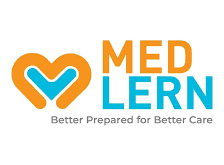Every day, Indian hospitals face an invisible enemy—not a disease, but a devastating shortage of skilled nursing professionals. With India facing a shortage of 2.4 million nurses while simultaneously serving as the world’s second-largest nurse exporter to OECD countries, we’re witnessing a perfect storm threatening quality healthcare delivery. Current nursing education approach goes only part of the way to prepare graduates for modern healthcare demands, creating jarring transitions from academic environments to high-pressure clinical settings. This results in higher first-year turnover rates, compromised patient safety, and increased recruitment costs—particularly critical when NABH accreditation evaluates hospitals on over 600 parameters, many directly related to nursing competency.
Strategic Solutions for Workforce Excellence
- Seamless College-to-Workplace Transitions: Structured residency-style orientation programs with gradual responsibility increases, continuous mentorship, and regular competency validation reduce first-year turnover by up to 40%. Preceptorship initiatives pairing experienced nurses with newcomers ensure clinical readiness while building institutional loyalty.
- NABH-Aligned Competency Training: Modern modules must address core clinical competencies including patient safety protocols, digital health literacy, and emergency response. Simulation-based training increases clinical skills retention by up to 75% compared to traditional methods, allowing nurses to practice high-stakes scenarios without patient risk while ensuring simultaneous NABH compliance and clinical excellence.
- Technology-Enabled Learning Platforms: AI-powered systems personalize learning paths based on individual strengths and gaps, while microlearning modules provide just-in-time training accessible on mobile devices. This approach supports different learning preferences and creates continuous professional development without disrupting workflow operations.
- Specialized Career Pathways: Creating advancement tracks in critical care, oncology, and pediatrics addresses skill shortages while improving retention through clear professional growth opportunities. These pathways integrate with privileging decisions and credentialing requirements, ensuring regulatory compliance while supporting career development.
- Data-Driven Performance Analytics: Advanced learning management systems provide real-time visibility into competency levels, enabling proactive intervention before skills gaps impact patient care. Predictive analytics identify at-risk employees and recommend targeted retention strategies while generating automated compliance reports for accreditation processes.
- Measurable ROI for Hospital Leadership: Strategic training investment delivers reduced turnover costs (₹5-8 lakhs per nursing position), improved patient satisfaction scores directly correlating with revenue, faster NABH accreditation achievement, and enhanced institutional reputation leading to better patient acquisition and staff recruitment.
The Transformation Imperative
The economic implications extend beyond initial investment costs. Hospitals implementing comprehensive training programs report significant improvements in patient safety metrics, reduced adverse events, and enhanced staff satisfaction. These improvements translate directly to bottom-line results through reduced liability, improved accreditation scores, and enhanced market positioning.
Modern training platforms leverage artificial intelligence to optimize learning schedules, minimize operational disruption, and democratize access to world-class nursing education. Cloud-based solutions enable institutions across India to deliver consistent, high-quality training regardless of size or location, particularly benefiting smaller hospitals and nursing colleges previously lacking sophisticated training resources.
Building Tomorrow’s Nursing Excellence
The healthcare landscape demands immediate action. Organizations investing in comprehensive, technology-enabled training solutions today will secure competitive advantages in nurse recruitment and retention, ensure sustainable accreditation compliance, and build resilient workforce capacity. The transformation from traditional nursing education to strategic workforce development represents a fundamental shift toward sustainable healthcare excellence. As India’s healthcare sector continues its rapid expansion, institutions that prioritize evidence-based, technology-enhanced nursing education will not only survive the current crisis but emerge as leaders in delivering exceptional patient care. The question isn’t whether to invest in advanced nursing training—it’s how quickly you can implement solutions that transform your nursing workforce from an operational challenge into your greatest strategic asset.
By: Mr. Deepak Sharma, Co-founder & CEO, MedLern
 Newspatrolling.com News cum Content Syndication Portal Online
Newspatrolling.com News cum Content Syndication Portal Online







